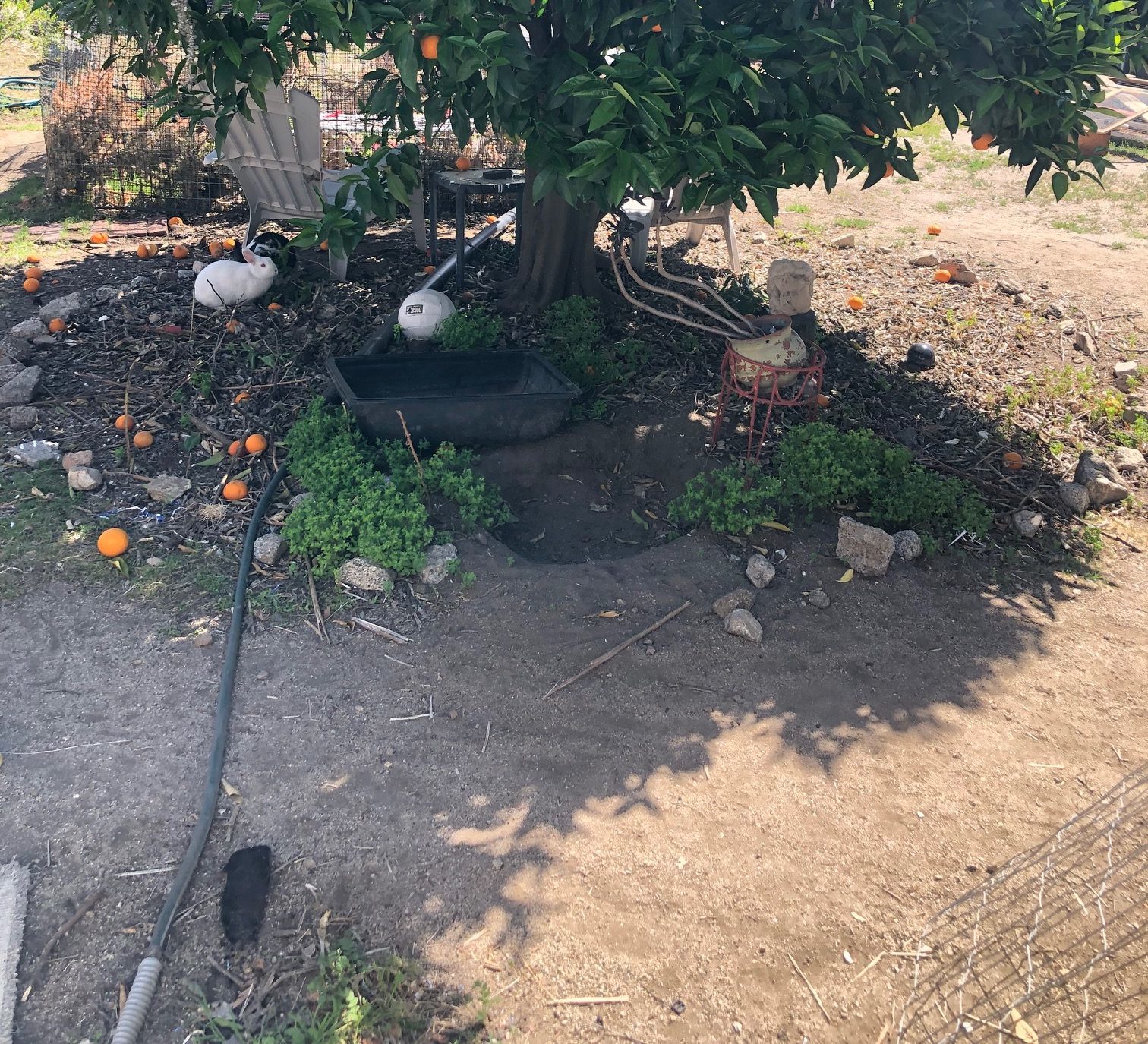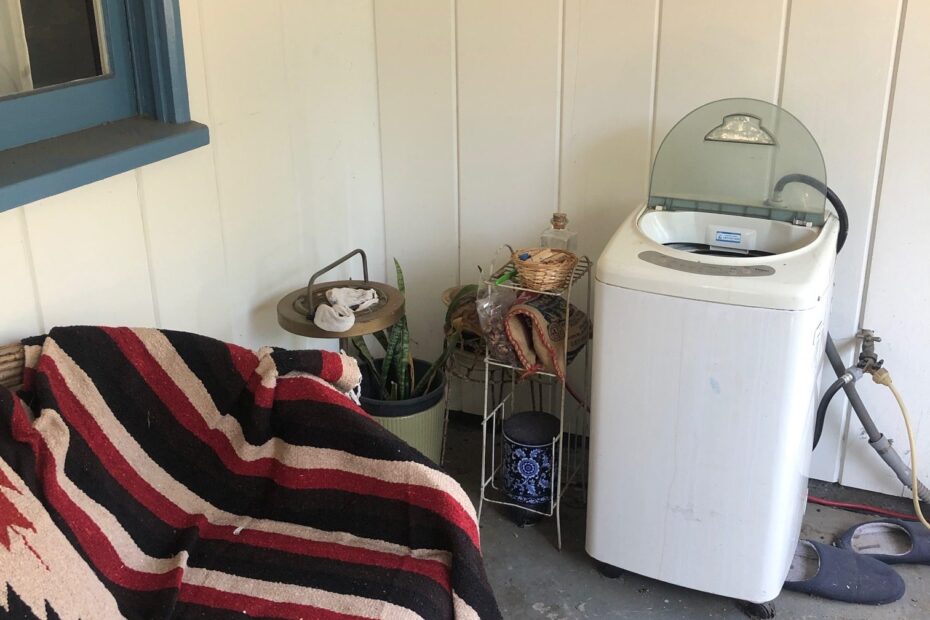There are a number of ways to create a DIY greywater system without spending a dime or hiring a crew to install special grey water plumbing. Some of these suggestions may be technically illegal, but I believe people should be empowered to responsibly utilize their own water, especially in places where drought is an issue. If citizens have access to and are trusted with a number of harmful, explosive and toxic chemicals, oils and gasoline, I think we can be trusted with diverting some grey water to nourish our plants.
Clothes Washer
Our mini washer from our apartment days still works, and it even looks cute on the patio, hooked up to our spigot there. Plus, the patio provides easy access to our solar clothes dryer. The laundry line cost only a few dollars, and has held up for more than 2 years. Free of large laundry machines, our laundry room instead functions an office.
Move the washer to the back patio and hook it up to a hose (as pictured) or place it near a window or door outside. Wedge a hose into the grey line that comes out of the machine. Direct it outside to your trees and garden. I directed the hose to run through a large pipe toward my garden. It doesn’t water it directly, but it adds to the water table underneath while nourishing the orange tree. Our oranges went from mediocre to praiseworthy! Eventually, I hope to find an old hose to poke holes in where it passes my garden plants to create a sort of greywater drip system. In the meantime, I dug a hole near the end of the hose to fit my trough. This way, I can I aim the laundry runoff to it and dip my watering can in there to water my garden.

An Ounce of Prevention!
Turn the washer water off when not in use. When you do things the DIY way, you have to take more care.
Homes with a crawl spaces will find it much easier to divert greywater lines under tubs and sinks to a hose running to the yard. It is important in these cases that the yard slope downward, and to keep an eye out for leaks under the house. Renegade waterers need to be vigilant.
Simple Ways to Capture and Use DIY Greywater
Maybe you rent your home or you don’t have access to a yard. Maybe you want to save every drop like a good environmentalist! You can still capture greywater to water houseplants and even flush your toilet. I keep a tub in my sink to capture water from dish rinsing, vegetable and hand washing. I then carry the tub to the patio to water all of my outdoor plants. If you rent, you can water the landscaping this way, sending water back into the ground and therefore into the water table- just make sure things don’t get overwatered. You can also pour the water into a vessel for watering your guerilla plantings on your daily walks. It important to note that greywater must be utilized within 24 hours.
Operate your Toilet for Free
In the book Extreme Simplicity, by Christopher and Delores Nyerges, they outline turning off the water to the toilet and using shower water to refill the tank. The tops can be cut off of old detergent bottles to create a manageabe water catching vessel with a handle that can live in the shower and easily pour into the back of the toilet. However, any old way your imagination can devise to capture water and pour it into the toilet tank will work.
Detergent and Soap Safety
Although we should not see such a separation between the water that goes down the drain or the recycled water that feeds our own garden, when we put the runoff in our own yards, we awaken our uncertainty about what exactly we’re putting into our soil. This is justified. The lab created polymers in every plastic bottle of shampoo purchased from corporate chains seem ok when they’re adding shine to our hair and going into the sewer system, but do we want that Polypropylene Glycol in our garden? No, probably not. I recommend using soap nuts as laundry “detergent” and treating stains with Castille soap and sunlight. And always wash cold. This is the greener option, and it doesn’t set stains, giving us more opportunities to save our clothing.
I recommend switching any liquid dish washing soaps for the vegan Dish Washing Block by No Tox Life. I do not have a dishwasher, so I have not researched soaps for dishwashers. Feel free to share any garden safe options in the comments!

